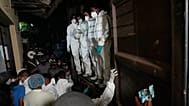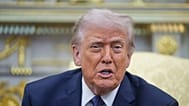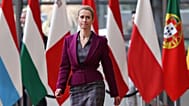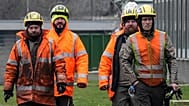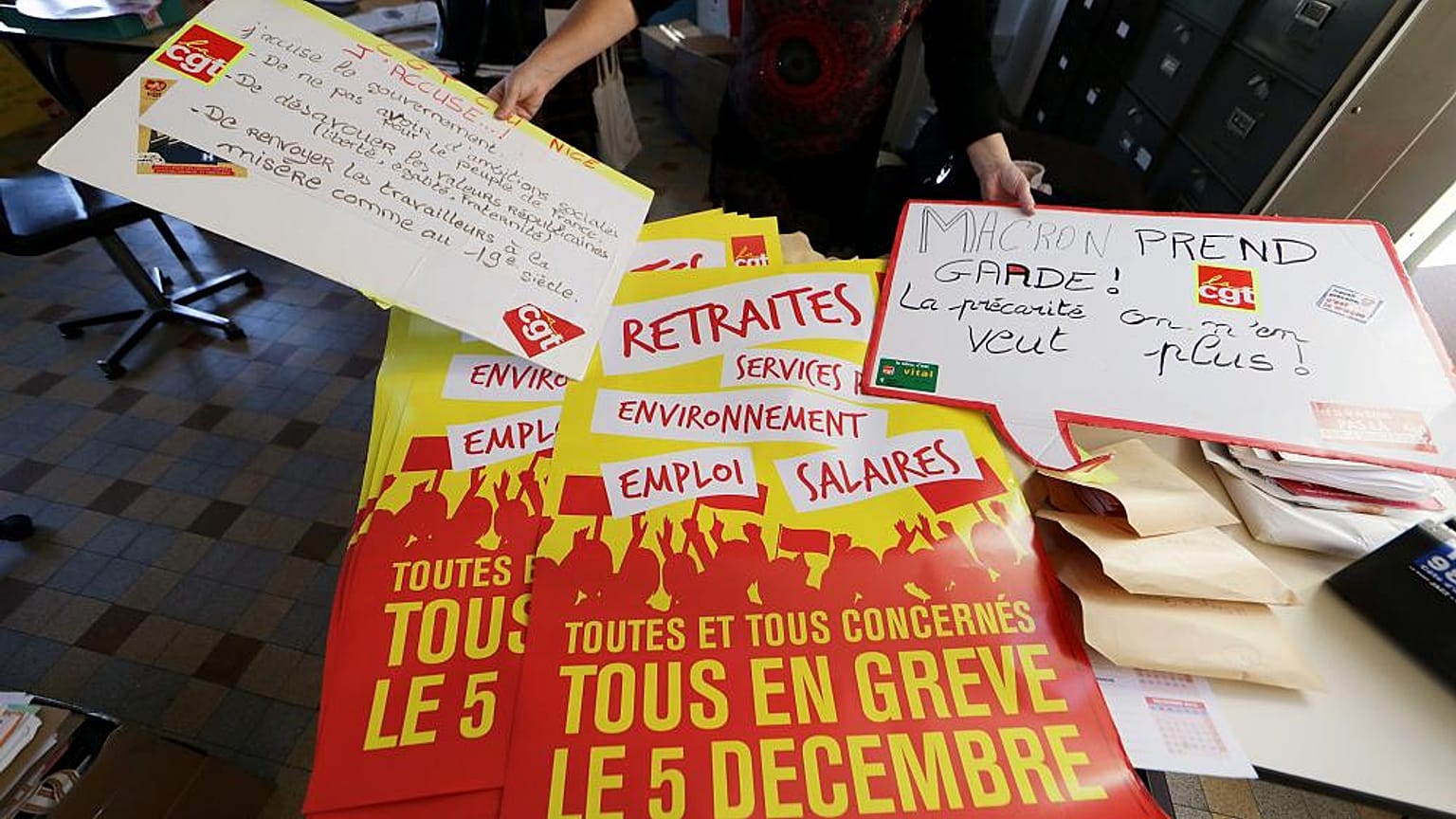The strike that crippled public services in France enters a second day on Friday to force French President Emmanuel Macron drop the new retirement pay legislation.
France braced for more disruption on Friday as the country's largest strike in years entered its second day.
 ADVERTISEMENT
ADVERTISEMENT
 ADVERTISEMENT
ADVERTISEMENT
There were cancellations of rush-hour trains into Paris on Friday and 10 out of 16 metro lines were closed while others ran limited services. As commuters took to their cars, traffic jams totalling 350 km clogged the roads in and around the capital.
An estimated 806,000 people across France took part in demonstrations on Thursday against President Emmanuel Macron's proposed pension reforms.
Meanwhile, a nationwide strike by transport workers, teachers and other professionals brought the country to a near standstill.
Police said 65,000 marched in Paris but Union leaders claim that numbers were higher, over 250,000 people, according to the CGT (General Confederation of Labour).
As the Paris demonstrations began on Thursday afternoon, French police fired tear gas and charged hooded protesters. Trouble broke out near the capital's Place de la Republique, when some protesters set fire to a truck trailer. 71 people were taken in for questioning on the sidelines of the protests, the Paris Police Department said.
Tear gas was also fired in the western cities of Nantes and Bordeaux, French network BFM reported, while Euronews reporters Sofia Sanchez Manzanaro and Natalia Liubchenkova felt the effects in Lyon.
Video circulated on social media showed clashes between protesters and security forces in Lyon.
The strike -- which is open-ended and could last several days -- has drawn comparisons with the struggle between government and unions in November-December 1995 when the country was paralysed for around three weeks.
Many workers across France have to stay at home or find novel ways to access their offices using car-sharing services, rental bikes or e-scooters.
Some 90 per cent of high-speed trains have been axed, most of the Paris metro is shut, hundreds of flights cancelled and the majority of schools closed in the strike.
Meanwhile, the French Civil Aviation Authority has confirmed a fifth of flights will be cancelled throughout the country on Thursday.
State carrier Air France has said 30% of its domestic flights and 15% of its medium-haul flights would be affected.
British low-cost carrier EasyJet has cancelled 223 domestic and short-haul international flights and warned others risk being delayed.
What's the strike about?
Macron wants to implement a signature campaign promise that would see a "universal" retirement system.
It would do away with 42 special or independent regimes for sectors ranging from rail and energy workers to lawyers and Paris Opera employees, which often grant workers higher pensions or early retirement.
But unions say the changes would effectively require millions of private-sector workers to work beyond the legal retirement age of 62 if they want to receive the full pension they have been promised.
Prime Minister Edouard Philippe, who has acknowledged French workers will gradually work longer, is set to unveil details of the reform on December 12.
Transport and schools shutdown
On the Paris metro, 11 of the city's 16 lines were completely down completely Thursday, with only the two fully automated lines running as normal.
The strike in Paris public transports will be extended until Monday, unions said.
Rail operator SNCF said 90 per cent of high-speed TGV trains, as well as regional services across the country, were cancelled, while international routes like the Eurostar and Thalys would be severely disrupted.
The Education Ministry said 51% of teaching staff in primary schools were on strike on Thursday and 42% in secondary schools. Only 30% of schools were able to open.
6,000 police deployed
Paris police chief Didier Lallement said around 6,000 members of the security forces were deployed in the capital alone, with 180 motorbikes used to respond fast to any rioting.
Police used tear gas in central Paris on Thursday afternoon when protesters on the fringes of the trade unions' march threw fireworks at officers, ransacked bus stops, and set fire to rubbish bins.
There were dozens of arrests. Union leaders said those involved in the violence were not affiliated with the trade union movement.
Outcome uncertain
The strikes will be a major test of whether Macron, who came to power on the back of a promise to transform France has the political strength to push through his vision.
The president is seen as having seen off the threat posed by the "yellow vest" protesters whose weekly demonstrations against inequality shook France from November last year.
But their anger could feed into the strike movement called by the unions and a transport strike on September 13 that caused gridlock in Paris might prove a harbinger of things to come.
"The moment of truth for Macron," wrote the Le Monde daily in Thursday's edition. "The next days are a decisive test for the head of state."
The Mediapart website added: "Will the protests and strikes be strong enough to halt the march of reform? Everyone is holding their breath."
READ MORE: Could France's strike undermine the President's international leadership?

